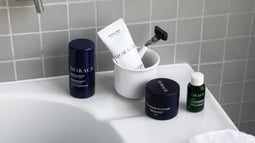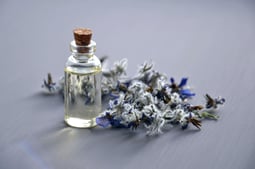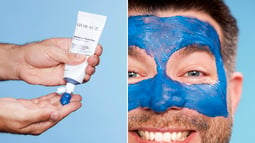

Everything you need to know about moisturising your skin.
It’s the same old story every year. While winter and cooler temperatures set in, and the scarf and hat return to service, our skin is subject to the same ailments: tightness, redness, discomfort… It’s no secret that to protect from external aggressions and sooth the epidermis, it has to be hydrated. But why does our skin become thirstier in the winter? Why is it important to have well hydrated skin? And what are the right actions to adopt? Dr. Isabelle Gallay, dermatologist in Dijon, and vice-president of France’s National Union of Dermatologists-Venereologists (SNDV) answers all your questions on hydrated skin.
How does the skin stay hydrated?
First things first: the skin is an organ made of tissues, and it needs nourishment. The stratum corneum, or the superficial layer of the epidermis made up of dead cells, is protected by what is known as the hydrolipidic film, itself composed (in particular) of sweat and sebum. This film protects the skin from aggravation and helps maintain a level of hydration. So, when it is damaged, the skin is more vulnerable: a moisturiser is needed to replenish this protective barrier. “Hydration consists of bringing different substances to the surface to compensate for any deficits due to dryness, whether climatic or constitutional, for people with pathologies,” explains Dr. Gallay, before continuing: “We mainly provide molecules called ‘natural moisturising factors’ in order to compensate for what we lack.” These substances – amino acids, hyaluronic acid, lactic acid… – are important for water retention, and therefore keep the skin hydrated.
Hot, cold, wind… What causes the skin to crease?
If in theory the skin is supposed to regulate its own hydration, aging and external aggressions contribute to drying out. As Dr. Gallay explains, our skin is more or less prone to dehydration depending on the climate: “The infrared from the sun will heat the skin, causing evaporation and thus dehydration. In winter, the cold will constrict blood vessels and decrease nutritional intake. It is largely the wind and the more aggressive climatic elements that cause cellular dehydration,” explains the dermatologist. With age, and the twists of life, the skin can have difficulty regulating hydration: “If we do a lot of sport, with intense activities, the body draws on its reserves, which must be reconstituted,” explains Dr. Gallay.
But ultimately, what is the risk with having insufficiently hydrated skin? Dry skin starts with duller skin, tightness, redness and irritation… In short, with discomfort. But that’s not all it is: “The skin is less well-protected, it will more easily let bacteria and microorganisms pass through… The skin barrier is less effective”, reports the specialist. Regular hydration is therefore essential. Especially in summer and winter, when the external environment tends to attack the hydrolipidic film more.
Hydration: a habit to integrate into your routine
Depending on your skin type, the advice might vary: a light moisturiser applied in the morning might be sufficient enough for normal skin. Skin with a drying pathology, such as eczema, atopic dermatitis or psoriasis should be hydrated more frequently, rather than twice a day. Apart from these particular cases, it is advisable to choose a more or less rich cream according to your skin type, and to be applied in the morning after washing your skin, to protect yourself from pollution and climatic factors, then finally in the evening. “If it is advisable to bring a light and protective emulsion in the morning, in the evening you can put something more restorative, with polyunsaturated fatty acids, omega 3… They ought to replace the deficiencies of the cell membranes,” explains Dr. Gallay. Advice to consider as much in winter as any other time, when the fresh air puts strain on our skin, bundled up under layers of clothing.








